- About Us
- Columns
- Letters
- Cartoons
- The Udder Limits
- Archives
- Ezy Reading Archive
- 2024 Cud Archives
- 2023 Cud Archives
- 2022 Cud Archives
- 2021 Cud Archives
- 2020 Cud Archives
- 2015-2019
- 2010-2014
- 2004-2009
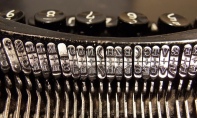 |
Cud Flashes In The Pan |
What if characters out of fantasy fiction were the norm in today’s real world?
“Quality Control”
Contemporary Fantasy
By David M. Fitzpatrick
It was late, but Frank Williams had to stay up past midnight. He rarely saw them, but so long as he left food and drink, they were always helpful.
He left a single light on in the shop’s back room, where he sat at his worktable. Nearby shelves were lined with shoes that he had repaired; out front, the store’s shelves held even more of the highest-quality shoes. But it didn’t matter anymore. Frank settled back in his chair with a cold bottle of Shipyard ale and began tamping tobacco into his great-grandfather’s old pipe. He usually only smoked the pipe on very special occasions. This was the reverse.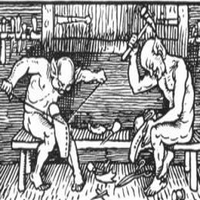
It was after midnight when he heard the little footsteps coming up the basement stairs. The door opened and he saw them. They froze in the light, surprised.
“Good evening, Maleek,” Frank greeted the one in front.
Maleek, who was barely three feet tall and slender, bowed his head in greeting. The other three elves behind him followed suit. “Good evening, Frank. It has been a while. We’ve enjoyed the wonderful things you and Darleen have left for us.” He wore a Robin Hood-esque cap that didn’t hide his pointed ears.
“And we have enjoyed the help you’ve given us.”
Maleek walked casually into the workshop, while the other elves held back. “The pipe, I see. But I sense this is not for celebration.”
“Indeed not, old friend,” Frank said. “I think you had better give the others the night off. I have some unfortunate news to discuss with you.”
* * *
After he’d told the tale, Maleek, sitting in the other chair like a one-eighth-scale version of a human, shook his head in disbelief while Frank lit the pipe and puffed on it.
“Surely there must be something we can do,” Maleek said. “We’ll redouble our nightly efforts.”
“It isn’t about quantity,” Frank said. “It’s just the way the business has gone. Nobody wants to buy quality shoes from a shoe store like this anymore when they can spend a lot less at Walmart.”
Maleek scoffed. “But those are junk!”
“Of course they are, but people aren’t smart enough to do basic math. You and I know that a pair of shoes costing $100 that will last a lifetime is a far better value than spending $25 for shoes that will wear out in a few years. But people today don’t think beyond the price tag. They want to spend as little as possible and worry about tomorrow. And the same is true of cobbling. Nobody wants to pay to fix shoes when they’re so cheap to buy.”
“It just doesn’t make sense,” Maleek said, and he pounded his fist on the table with surprising force for such a little guy. Frank knew he only weighed thirty pounds or so. But oh, how skilled he and his elvish brethren were at shoemaking! “I’ve personally helped four generations of your family make shoes. And you—you’re only forty-five! Too early to retire. What will you do?”
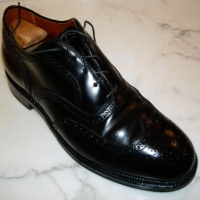
Frank shrugged. “Knowing my luck, I’ll probably end up selling cheap shoes at Walmart.”
Maleek seethed in silence. Making and repairing shoes was the elf’s life. This was hurting him as much as Frank. He passed the pipe over, and Maleek took it, puffed it, blew smoke in a big ring.
“I sat in this very room smoking that very pipe with your great-grandfather,” he observed as he handed the pipe back. “It isn’t right. You know, a distant cousin of mine lives under New York City and helps an old cobbler there. He makes a fine living.”
“Sure, in New York City, where there are millions of people,” Frank said. “This is the coast of Maine. Not enough people, and only the old folks care. And they’re dying off.”
“You can’t tell me that there aren’t younger people in the world who care about quality and craftsmanship.”
“Sure there are. But they aren’t here. And Darleen and I would never be happy moving away.”
They sat in silence for a while, occasionally passing the pipe back and forth. Frank got a bottle of Shipyard from the fridge and popped it open for Maleek. They drank and smoked in silence.
“You know I wanted to do this until I died,” Frank said. “I learned my trade from my father, and I’ve loved it since I was a boy. And knowing you and the other elves has made my life all the more special. But now I’ll work jobs I hate until I retire, go on Social Security, and stare at the TV for the rest of my life. Nothing about this appeals to me.”

“TV and Social Security,” Maleek scoffed. “Money, retirement, cheap shoes, chain stores—your world confuses me. I’ve never understood it. Like this Internet thing you’ve been showing me.”
“That’s another thing—the Internet. If the chain stores selling cheap crap isn’t bad enough, then there are all the sales we lose to places like Amazon. We just can’t compete.”
Maleek squinted in the darkness, tight-lipped and serious. “We’ll see about that.”
* * *
It took a few weeks for Maleek and his elves to really get up to speed on everything, but once the little elf presented his ideas to Frank, the old man couldn’t say no. And with that, the centuries-old elves added new skills to their repertoire of shoemaking craftsmanship: They had become Web designers and online marketers.
Frank closed the storefront, but he and Maleek learned how to reach a broader audience. They found people nationwide interested in what a skilled cobbler could do, and found buyers around the world who appreciated high-quality, handcrafted shoes. They found them through their own Web site. They found them on eBay. And they even found them on Amazon.
“Monkey Wrenches”
Contemporary Fantasy
By David M. Fitzpatrick
The car had been really acting up lately, and Jerome was no mechanic. The power steering had been acting up, the engine had been sputtering, and now the transmission was having troubles shifting, so he knew he had to get it to Stinson’s Garage. He hoped that his guess as to the cause was wrong. He was an on-the-go guy—work, the clubs, the chamber of commerce, volunteering at the local Habitat for Humanity, and so on. He didn’t have to drive far, but he had lots to do. His car needed to work.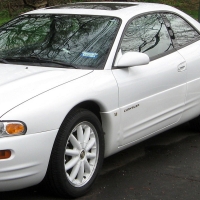
Jerome stood in the waiting area, tossing back a Pepsi and looking through the door to the service bays, where he could see his Chrysler Sebring on the lift. It was a 2010, the last year they’d made the model, and in six years had never given him a problem—until the last two months, anyway. The first problems began shortly after the factory next door to his apartment building had closed. It was too bad—two hundred people laid off, after the place had made automotive parts for over sixty years. He used to hate the endless sounds of the factory equipment running two shifts a day, but now he kind of missed it.
He could see Glen Stinson, the owner, with two of his young mechanics, looking up at the car’s underside. They were talking excitedly, pointing and gesturing. It didn’t look good, and with so many things going wrong with the car lately, Jerome just knew what the diagnosis would be. Murphy’s Law almost demanded it.
Finally, Glen headed in through the door with a serious look on his face. Jerome felt the Pepsi can squash a bit in his hand as Glen came before him in the waiting area.
“Well, it ain’t good, Jerry,” Glen said.
Jerome swallowed. “Tell me it isn’t what I thought.”
“Sorry, pal,” Glen said, looking like a doctor delivering terminal news.
“No way,” Jerome said, smacking his face with his free hand and crushing the can with the other. “No, no, no… please, not one of those things.”
“Worse,” Glen said. “We’ve found three so far. Might be more.”
Numb, Jerome followed Glen out past the CUSTOMERS NOT ALLOWED BEYOND THIS POINT sign. They stopped under the raised car and one of the young mechanics brought in a detection gun, powered it up, and began scanning the underside of the Sebring with it. It hummed and beeped steadily for a bit, but then the display suddenly lit up like fireworks and an alarm sounded.
“There’s one,” Glen said. “In the gas tank. On the move. Light him up, Jimmy.”
The mechanic nodded, adjusted the aim until the alarm was louder and steady, and pressed the trigger. A translucent beam flashed from the top of the device like a laser, and Jerome heard a high-pitched squeak. And as he watched, he saw the thing phase through the metal tank, and for a split second Jerome made eye contact with it. Oversized, electric-blue eyes glared at him above rows of shark-like teeth, and it squealed again. Then it phased back through the metal and vanished.
“Goddam gremlins,” Glen said. “Usually a car gets hit with just one, maybe two in a bad case—but you’ve got at least three in there.”
“How?” Jerome cried, helpless.
“Who knows? They’ve been screwing up machines since people started making machines. Cars, trains, cotton gins, chariots, ancient mechanical clocks, you name it. If it was a machine throughout history, gremlins have been messing with them.”
“Can you get rid of them?”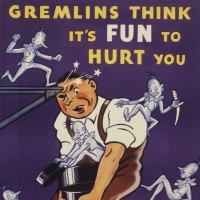
“Maybe, but it could take twenty minutes or twenty days. Magical little bastards pass through solid objects, and they move quick. And they don’t like to leave their machines.”
Jerome half-stumbled back. The only good news was that he owned the Sebring free and clear. The bad news was that he couldn’t afford a car payment. But he needed to get places. Forget his social life—his job alone was demanding. He did job retraining, and those very two hundred displaced workers from the shuttered factory next door to his apartment building were on top of his list. And, okay, he did like his social life. But his volunteer and civic work was part of who he was, too. Was he going to have to get a bicycle? With his luck, it would pick up a gremlin, too. Where the hell had he gotten so many of them?
“I don’t know what I’m going to do,” he said.
“Chances are good your insurance company will total the car, because it’s more than likely that my labor in trying to get rid of the gremlins will far exceed the car’s value. So maybe you’ll end up with a new car out of this.”
Jerome brightened a bit. “You think so?”
“Might as well try. You know, some of the newer models have anti-gremlin features on them. They load them with complicated gearboxes and electronics that don’t actually do anything, but they attract the gremlins. Nestle them into every nook and cranny in the car, and they fill them with gremlin pheromones so they’ll focus on that. Dumb bastards don’t know the difference; they just get drawn in and find all those pointless spinning gears, and they pretty much stay away from the stuff that matters.”
“Well, all right,” Jerome said, pulling out his cell phone. “I’ll give my insurance agent a call.”
But his phone wasn’t working. He punched buttons, but the screen was frozen.
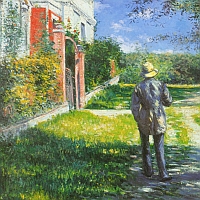
“Damn iPhone,” he muttered. “Last time I buy a piece of Apple crap.”
And then, as he was staring at the frozen screen, suddenly a tiny gremlin face with burning-red eyes and sharp teeth poked out of the device, laughed maniacally, and then drew itself back in.
“NO!” Jerome cried.
“Sorry, kid,” Glen said, clapping him on the shoulder. “You might have bigger problems than your car. You got lots of machinery at your house?”
That’s when it dawned on Jerome. “They closed the factory next door a few months ago. And I started having problems.”
“Ah, yep,” Glen said, nodding sagely. “Big businesses have gremlin exterminators on staff, but with the place shut down, they’ve taken notice of you.”
Jerome sighed and pocketed his phone. Maybe he’d start walking more. He needed the exercise anyway.
“Equal Rights”
Contemporary Fantasy
By David M. Fitzpatrick
Jeena sat alone at the end of the bar in a place called Kilmartin’s. It was a comfortable hangout for her—quiet, with mostly a regular clientele that didn’t ask questions and left people alone. Tim Kilmartin, the namesake owner, was a friend, and he kept any non-regulars away from her. Once in a while one of them tried to hit on her, but Tim always had her back.
She sipped her drink as Tim chatted with customers at the other end of the bar. It was a Roasted Toasted Almond—Kahlua, amaretto, milk, and a shot of vodka. It warmed her and made her forget the misery of everyday life. It was easier to drown her sorrows alone, with a kerchief tied around her head and under her chin, with her dark glasses on. There wasn’t anything she could do about things, anyway.
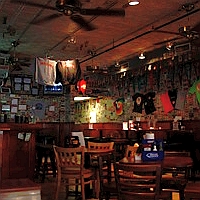
Someone was flipping channels on the bar TV, and there was a FOX News report on the civil-rights debate. “Of course they’re not equal to us,” one intolerant guest was saying. “They’re obviously different. And it isn’t just the color of their skin, either.”
The host was just barely smart enough not to agree with the hate speech that was always so rampant on that network; he didn’t challenge that opinion, and instead fanned the flames. “There are certainly many genetic differences, and scientific studies suggest that their average intelligence might be lower than ours. But you also have religious objections, is that correct?”
“Absolutely. This country was founded by humans, on Christian principles,” the guest said, his voice iron-hard. “They are
n’t human, and they aren’t Christian. If they don’t like that they can’t have the same rights as we do, then why do they keep coming into this country?”
Jeena was bristling, her muscles tense, even as Tim realized what was playing. “Okay, enough,” he snapped at the patron holding the remote.
“Sorry, Tim,” said the guy as he found the channel button. “I was just stunned by this asshole.”
He turned it over to MSNBC, but as soon as he did, a new voice erupted in the quiet bar.
“I was watching that!” the man hollered, and everyone reacted in surprise. “Turn it back.”
The others at the bar turned, and Tim regarded the man across the room. “Well, it’s my place, pal, and I don’t want that shit on my TV. If you don’t like it, find another place to drink.”
Jeena heard the man’s chair slide back and slam against the wall, and she tensed as she heard him approach the bar. She stole a look sideways as he arrived, and she sucked in her breath at the sight of him.
He was huge, about six-four and built like a linebacker with the broadest shoulders she’d ever seen. His head was a mass of curly black hair, his skin a dark brown. He was of African descent, but he clearly had Asian lineage as well, as indicated by his almond-shaped eyes.
“Turn it back,” the man ordered, dark eyes boring at Tim with boiling fury.
On MSNBC, they were showing clips of the civil-rights movement. There were hundreds of thousands of them gathered on the National Mall, and the leader was about to give a speech.
The much-smaller Tim stood his ground. “It’s time you left, pal.”

“I’m not your god damned pal,” the big man snarled, his almond eyes narrowing.
His boyfriend, who he’d left at the table, suddenly joined him. He was young and blond, short and skinny, and as pale white as his partner was dark brown, and he touched his lover’s bulging left biceps. “It’s okay, Deshawn,” he said in a soothing voice. “We can go elsewhere.”
Deshawn shook off his boyfriend’s touch and continued to glare at Tim. “It isn’t okay. People like this fucking bartender are why everyone wants to give those bastards the same rights as the rest of us. People like him think they’re equal to us. But they aren’t. Look at their skin, their eyes, their ears. And they aren’t Christian—not even Muslim. Atheists without any morals—and substandard creatures regardless!”
Jeena was wide-eyed behind her glasses, staring at the hateful man hollering at the bar, even as the other patrons had sidled away from him. She had gotten so lost in staring that she hadn’t realized that she was no longer looking sideways at him but had half-turned on her barstool and was staring, open-mouthed in astonishment, at the scene.
And, as if inner radar had told him, he suddenly snapped his head around to her, and they locked eyes.
“What are you looking at, sweetie?” he said with an evil leer. “You like what you see? Cuz I like men and women, you know. We’ll be happy to take you home with us.”
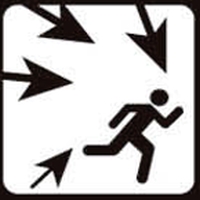
“You leave her alone,” Tim said, but Deshawn was already moving down the bar toward her. Jeena felt her whole body trembling under her long coat. He scared her. Terrified her.
And then he was there, leaning his monstrous form down to get his face into hers. “Cat got your—”
He got close enough, and his eyes grew wide, and he drew back in shock. “Holy shit—you’re one of them!”
He reached out and yanked the kerchief off her head, and it took her glasses with it. She leaped backward off the barstool and faced off with him. She was aware how tiny and slim she was against the massive, barrel-chested monstrosity towering above her. Damn, he was huge.
Her eyes were so red that they seemed to glow in the dim light. She had ears that were tall and pointed, their tips rising out from her dark-gray hair. Her nose was porcine, upturned and round and with giant nostrils. She had mottled green-and-black skin that looked almost amphibian.
“You’re a God damned orc!” he cried. “But not quite. You a half-breed, woman?”
She swallowed hard, feeling her two hearts pounding on either side of her chest, even as she saw Tim moving down to that end of the bar. “My grandmother was an orc.”
“Orc quadroon!” he cried out. “Too bad—if it weren’t for that ugly-ass skin, you might be pretty. But I bet you could find work in a whorehouse somewhere. There are plenty of twisted humans out there who are into bestiality.”
The sound of a shotgun being pumped ripped through the silent pause. Tim had pulled out his double-barreled defender out from under the bar and was hollering at Deshawn to leave as he brought the weapon to bear, but Deshawn spun like lightning and ripped the shotgun from the barkeep’s hands. In a flash, he swung around and jammed the business end right into Jeena’s face.
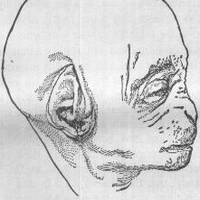
There wasn’t a sound in the bar besides Rachel Maddow delivering commentary on the television. All Jeena could see were the twin dark holes of the shotgun’s barrels just inches from her red eyes.
On the TV, Maddow was talking to the camera. “This country has had a long history of hatred,” she said. “We have, as a nation, hated Native Americans, hated African Americans, hated gays, hated Muslims.”
“All I gotta do is pull the trigger, you dirty pigger,” he said. “You’re not a person under the law, so they’ll never convict me. Probably won’t even charge me. I’ll be a fucking hero for the cause.”
Jeena’s resolve steeled. He’d kill her or he wouldn’t. She was tired of kerchiefs and dark glasses and long coats. And she liked Tim, but hated only ever hanging out at Kilmartin’s because she didn’t dare go anywhere else.
“Then do it,” she said. “If you can’t handle my existence, then you go ahead and shoot. And just think how that will rally orcs across America—and around the world.”
Deshawn froze, his eyes widening at her.
“One might say that our nation has been built, in part, on hatred,” Maddow said. “We have spent a lot of time hating, and with all sorts of ridiculous justifications. We have hated them for not looking like us, for not sharing our religion, for loving people of the same sex. I say ‘we’ here because we, as a nation, have indeed done these things.”
Jeena heard Maddow, knew how right this was.
“But we, as a nation, have also righted those wrongs,” said Maddow. “And here is the newest form of hate in America: hatred of orcs. And why? Their skin is a different color. They look strange. They have no religion. And, of all things, amidst these differences, they have the audacity to want to be treated with the same rights that humans enjoy here in this country. Well, it’s time that we, as a nation, once again right a wrong.”
Jeena heard the commentator, and she knew that Maddow was right. But not just humans had to right that wrong—orcs had to do it, too. In a surge of adrenaline, she pressed on at her assailant.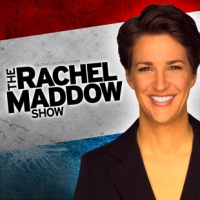
“Oh, they’ll charge you for an unprovoked hate crime, and they’ll convict you. But more than that, orcs will rise up and everything your hateful little brain is afraid of will happen—and it will happen quickly. You’ll live the rest of your life watching us marrying humans, sharing your drinking fountains, sending our children to school with yours, voting alongside you. You might even be around to see an orc president.”
Deshawn’s face was a mix of fury and fear.
“Orcs are sentient beings,” Maddow said. “They’re intelligent. They think, they feel, they care, they hurt. And they dream. And it’s time for us to welcome them to our world and shame those who are hateful and intolerant.”
Jeena and Deshawn stared at each other from either end of the shotgun—he trying to act righteous and powerful, but she actually looking like it.
Finally, he lowered the gun, turned, and headed for the door. He clattered the weapon on the bar before he left, followed by his blond lover.
“In the next few months,” said a solemn Maddow, “the legislation rammed through Congress by the GOP and signed by the Republican president, which officially declares orcs as animals with no rights, will go before the Supreme Court. With that decision, the very definition of who we are as a nation will be revealed. Watch this space.”
Jeena felt empowered, but she began shaking uncontrollably. When Tim rushed to her, she fell into his arms and cried.
David M. Fitzpatrick is a fiction writer in Maine, USA. His many short stories have appeared in print magazines and anthologies around the world. He writes for a newspaper, writes fiction, edits anthologies, and teaches creative writing. Visit him at www.fitz42.net/writer to learn more.
